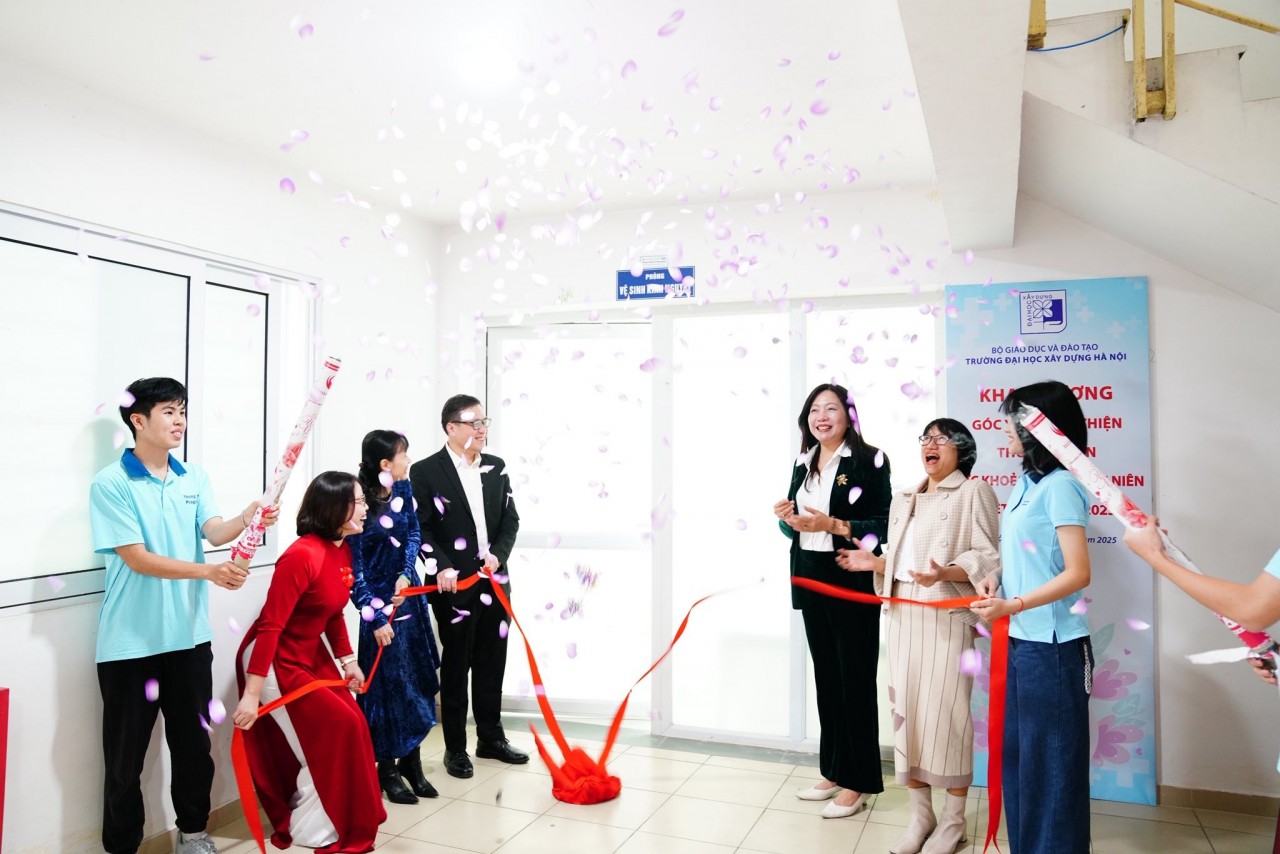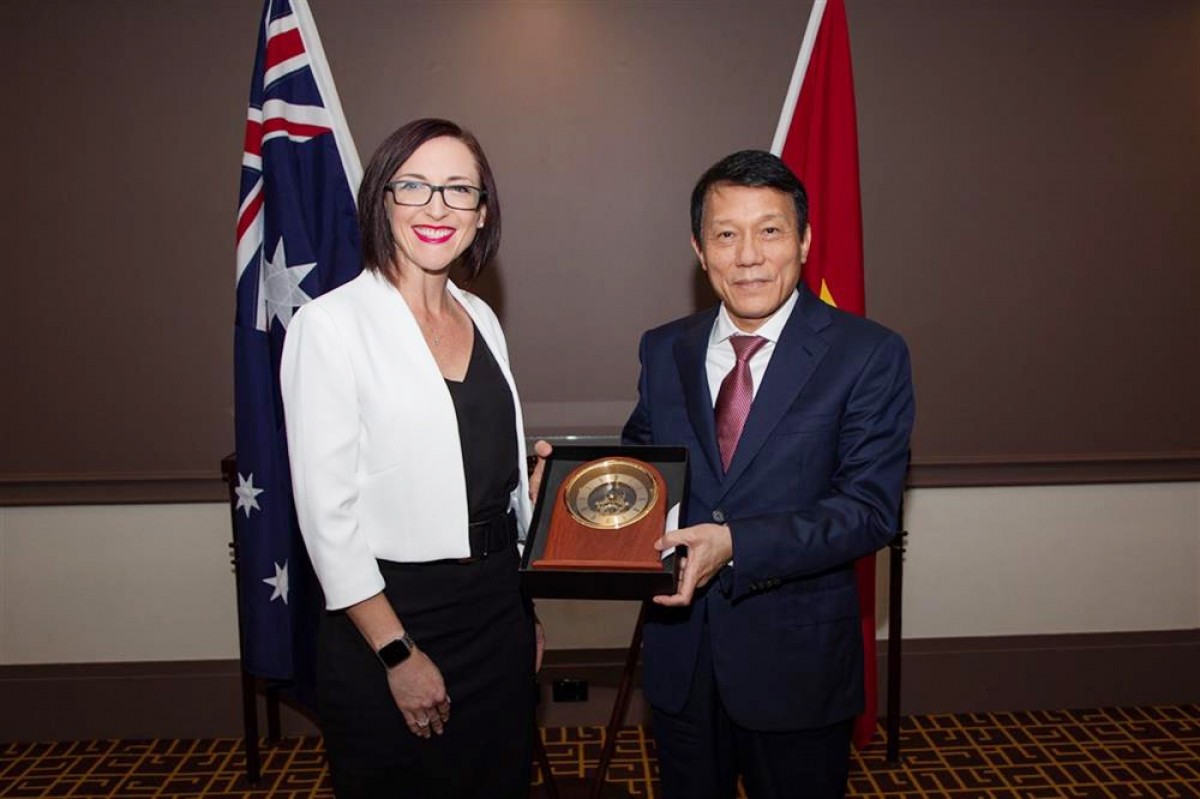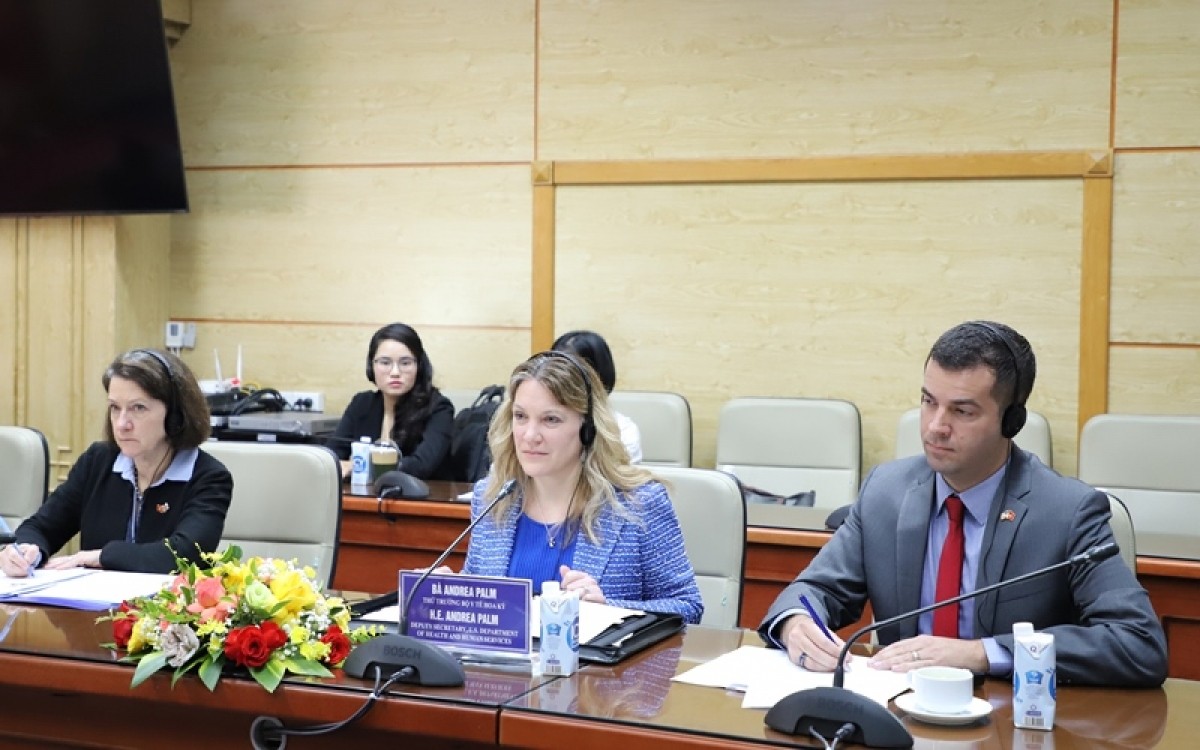Vietnam Leaves Imprint on Global Stage with Simultaneous Heart-lung Transplant
| Vietnam records success in heart transplant for youngest patient | |
| Mother wishes to meet the recipient of her son's heart |
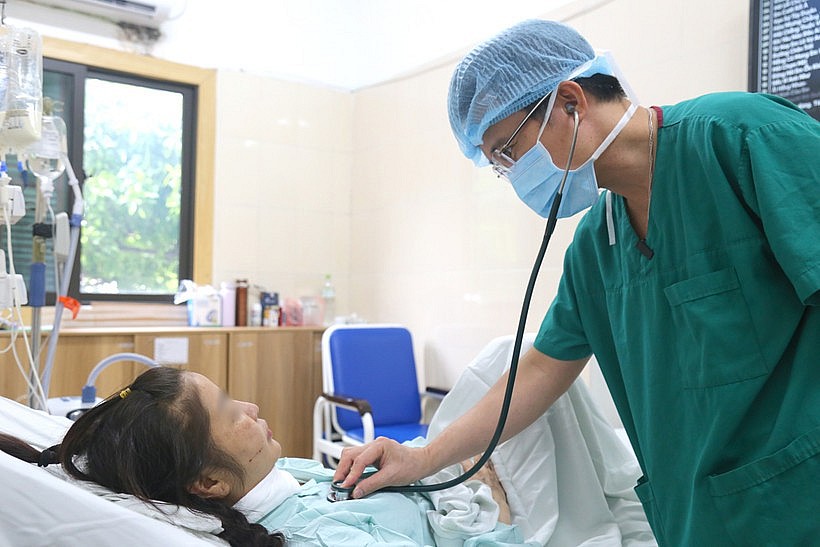 |
| Doctors check the patient's health after the transplant. (Photo: Vietnam+) |
On August 13, Viet Duc Friendship Hospital announced the first successful simultaneous heart-lung transplant for a patient with various organ failures in Vietnam.
Dr. Duong Duc Hung, Director of Viet Duc Friendship Hospital, affirmed that the success of the procedure marks an important milestone, highlighting the hospital’s significant progress in the field of multiple organ transplantation. The success also places Vietnamese medicine on the world map and opens up many opportunities to save the lives of critically ill patients.
Open up opportunities for more people
Dr. Pham Huu Lu, Deputy Head of the Department of Cardiovascular and Thoracic Surgery, reported that the patient, Tran Nhu Q., 38 years old, had a history of atrial septal defect and severe pulmonary hypertension. Although the defect was closed at Hanoi Heart Hospital in 2011, the patient had not been regularly monitored and had only been on medication for the past year. Notably, there was no history of cerebrovascular accident.
Upon admission, the patient was diagnosed with Eisenmenger syndrome, irreversible right ventricular failure, severe tricuspid regurgitation, and a history of atrial septal defect closure. Facing a high risk of death within days, doctors determined that a simultaneous heart-lung transplant was the only viable option, despite challenges such as untreated malnutrition and a donor lung infected with Acinetobacter baumannii and larger than the recipient’s chest cavity.
The complex transplant procedure was carried out over seven hours, coordinated by an interdisciplinary team from departments including thoracic cardiology, anesthesia-resuscitation, surgery, rehabilitation, and nutrition. During the operation, extracorporeal circulation was used to temporarily replace the patient’s heart and lungs. The surgical team comprised nearly 40 specialists across multiple disciplines.
“It is worth noting that to ensure the patient’s heart functions well, it is necessary to avoid infusing too much fluid, causing pulmonary edema, use less anesthesia and use the most advanced hemodynamic monitoring equipment. During the process, doctors must cut both lungs to fit, connect the two main bronchi instead of connecting the trachea according to the classic method to better perfuse the anastomosis, and use a flexible bronchoscopy during surgery to evaluate the two main bronchi anastomoses,” emphasized Dr. Pham Huu Lu.
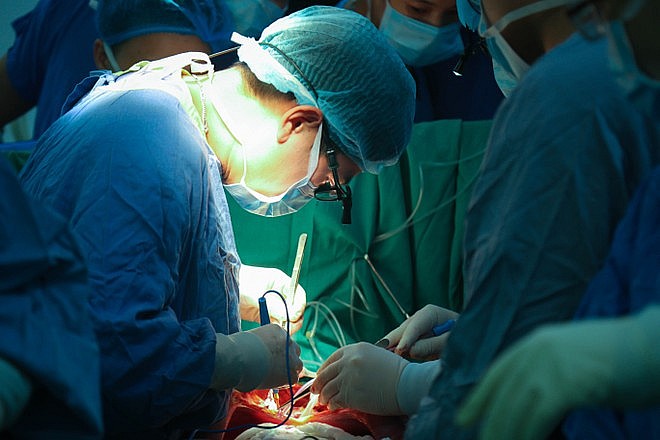 |
| Doctors perform an organ transplant on a patient. (Photo: Vietnam+) |
After lung transplantation, the patient required strong immunosuppressive drugs to prevent organ rejection. However, these medications significantly reduce the body’s resistance to infection, making the patient highly susceptible. To manage this, doctors had to carefully balance the dose of immunosuppressants. At the same time, ultrafiltration was used to treat kidney failure, which had developed due to multiple causes.
After consulting with specialists, the medical team decided to stop nephrotoxic antibiotics and closely control the concentration of immunosuppressants to reduce kidney toxicity. This approach led to signs of recovery after two weeks. The patient continues to be monitored in the resuscitation unit following the transplant.
This is a particularly rare and complex case, requiring interdisciplinary coordination and the use of the most advanced surgical and resuscitation techniques available today.
Leave imprint on global stage with simultaneous heart-lung transplantation
Dr. Duong Duc Hung explained that heart-lung transplantation is a highly advanced medical procedure in which both the heart and lungs of a patient are simultaneously replaced with healthy organs from a compatible donor. This technique represents the final treatment option for patients suffering from end-stage heart and lung disease, when all other therapies have failed. The surgery demands exceptional technical precision, coordination across multiple medical specialties, and a specialized system for resuscitation and post-operative care.
Globally, heart-lung transplantation is rarely performed due to the scarcity of suitable organ donors, the complexity of the surgical procedure, and the high risk of complications. It is specifically indicated for patients with concurrent end-stage heart and lung failure, where no other treatment options remain. Because of these challenges, only around 100 heart-lung transplants are carried out worldwide each year.
The Director of Viet Duc Friendship Hospital emphasized that recent advances in surgical techniques, resuscitation protocols, and post-transplant care have significantly improved outcomes. In the United Kingdom, the 90-day survival rate following heart-lung transplantation is approximately 85%, with a one-year survival rate of 72%. In the United States, leading centers such as Stanford Health Care have reported one-year survival rates nearing 90%, surpassing the national average. International data also show a five-year survival rate of around 60%, underscoring the effectiveness of this procedure in extending life and enhancing its quality for patients.
Ha Anh Duc, Director of the Department of Medical Examination and Treatment Management under the Ministry of Health, remarked that this is currently the most complex type of transplant performed worldwide. The successful execution of a simultaneous heart-lung transplant represents a major breakthrough in organ transplantation capabilities, particularly in multi-organ procedures, and highlights the surgical expertise of the Vietnamese medical team.
“This is a remarkable achievement not only for Viet Duc Friendship Hospital but also for Vietnam’s entire healthcare sector,” he stated. “We continue to elevate the reputation of Vietnamese medicine, demonstrating that our expertise can stand alongside that of developed nations, even though their economic resources far exceed ours.” This milestone opens new possibilities for treatment and hope for patients suffering from end-stage heart and lung disease.
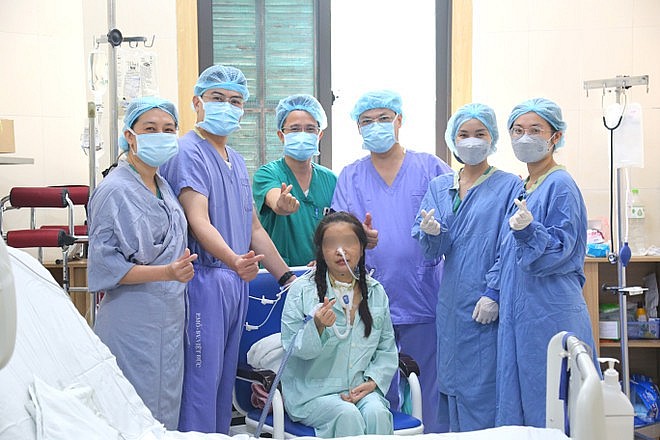 |
| The patient's heart and lungs were replaced with a healthy heart and lungs from a suitable donor. (Photo: Vietnam+) |
In 2025, Viet Duc Friendship Hospital recorded its highest-ever number of organ retrieval and transplantation cases from brain-dead donors. The hospital’s program for organ retrieval and transplantation from brain-dead donors has been in operation since 2010, making it the first facility in Vietnam to perform this technique. Typically, the hospital averages 8–10 brain-dead donors per year, but in 2025, that number rose to a record 25.
From late 2023, especially throughout 2025, there was a notable surge in brain-dead donor cases. Between August 2024 and August 2025, the hospital mobilized over 50 families of patients with severe traumatic brain injuries to consent to organ donation, successfully retrieving organs from 34 brain-dead donors. Remarkably, there were weeks when the hospital performed multiple organ transplants from brain-dead donors, with patients receiving hearts, livers, kidneys, and in some cases, two organs simultaneously.
This one-year period marked a historic peak in brain-dead organ donation, resulting in the highest number of multi-organ transplants ever performed following resuscitation and brain-death diagnosis.
As of August 12, 2025, Viet Duc Friendship Hospital has carried out a total of 2,478 organ transplants from both living and brain-dead donors. These include 109 heart transplants, 8 lung transplants, 169 liver transplants, and 2,192 kidney transplants.
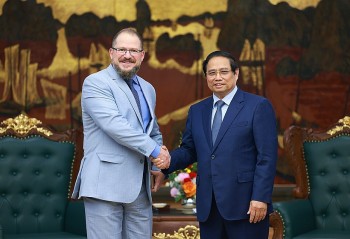 | PM Urges Qualcomm to Deepen Investment in Core Tech, Semiconductors The PM lauded Qualcomm’s two-decade partnership with Vietnam, spanning mobile connectivity, technology transfer, artificial intelligence (AI) research, STEM education, startup incubation, and innovation ecosystem development. |
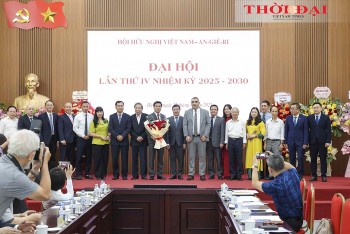 | Vietnam-Algeria Friendship Association for 2025-2030 Term: Promoting Economic Cooperation and People-to-People Exchanges On August 12 in Hanoi, the Vietnam-Algeria Friendship Association (the Association) held its 4th National Congress for the 2025-2030 term to review activities from 2016 ... |
Recommended
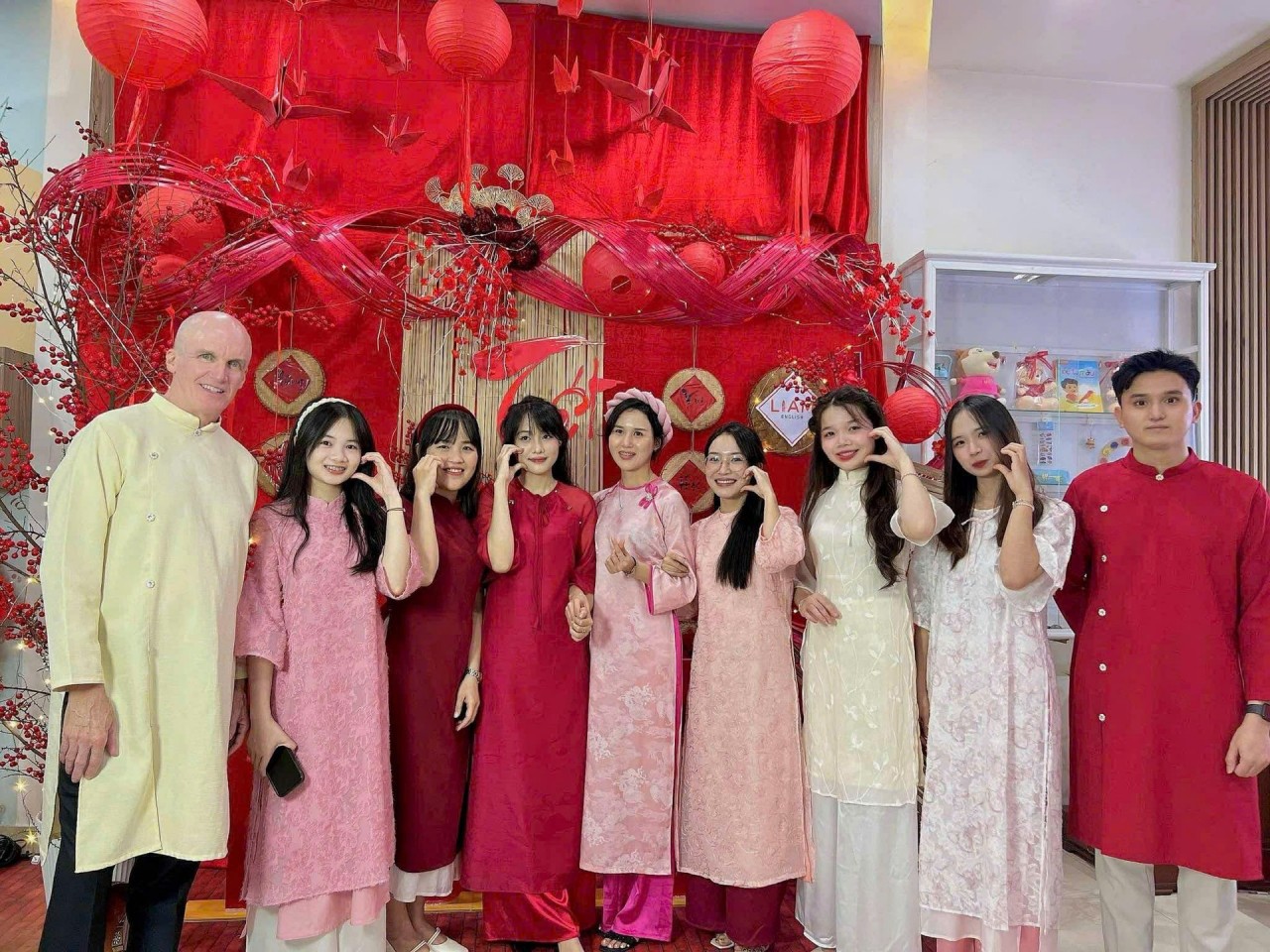 Expats in Vietnam
Expats in Vietnam
Vietnamese Tet - Where “Friends from Afar” Find a Sense of Belonging
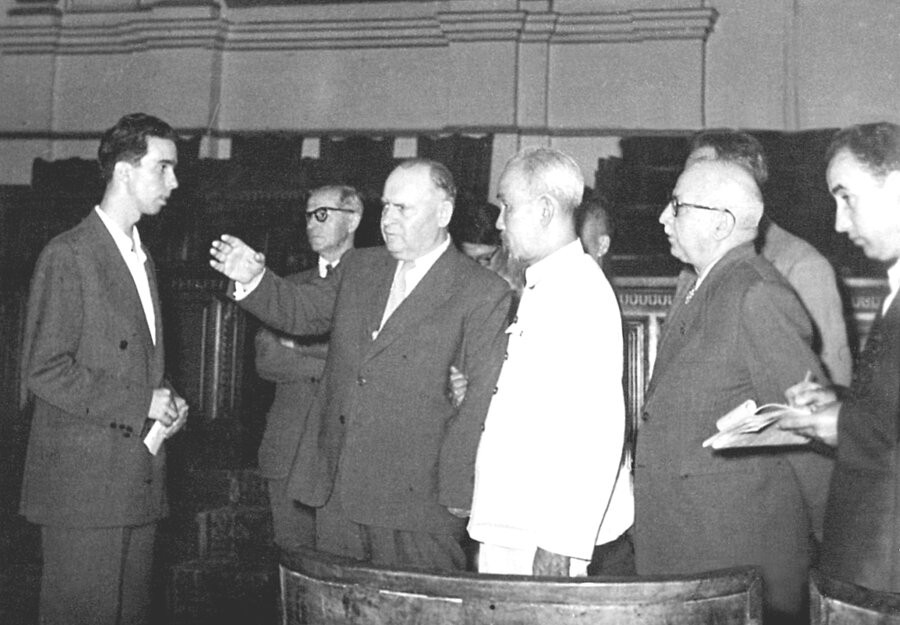 Viet's Home
Viet's Home
Ho Chi Minh’s Legacy in the Land of Roses - Bulgaria
 Viet's Home
Viet's Home
Vietnam Continues to Work with UNESCO to Safeguard Cultural Diversity in the Digital Era
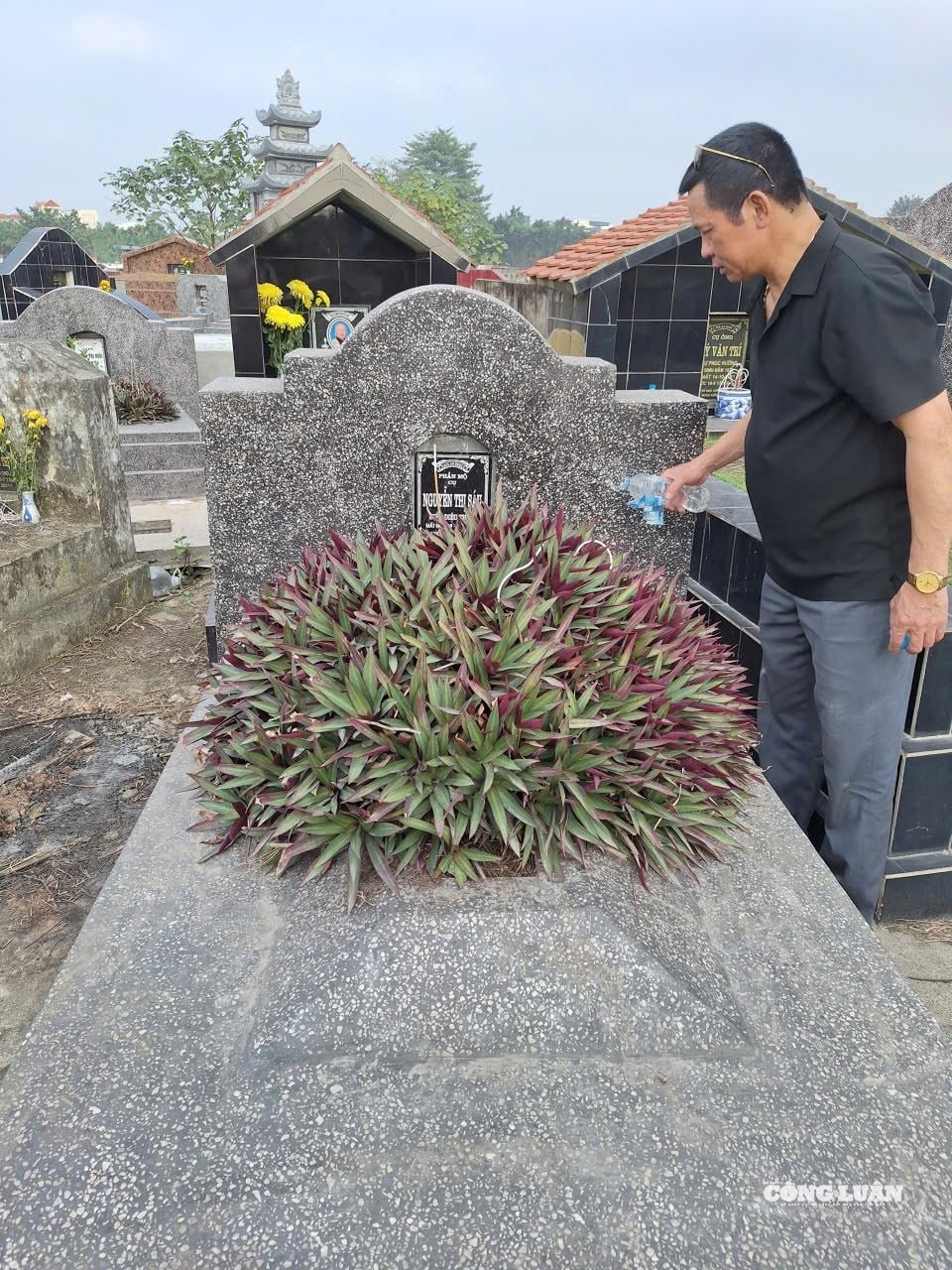 Viet's Home
Viet's Home
Inviting Ancestors Home for Tet
Popular article
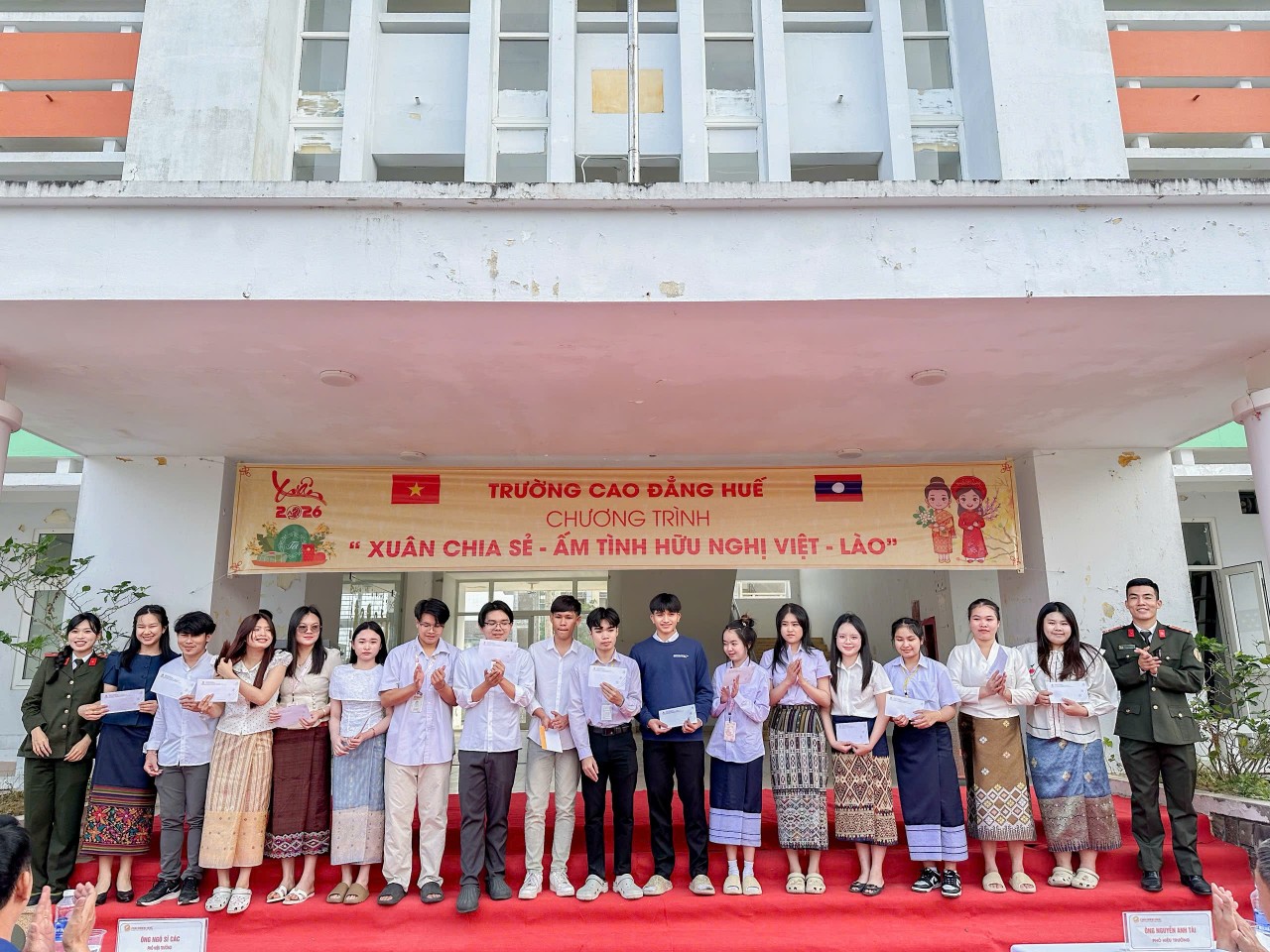 Viet's Home
Viet's Home
Universities In Vietnam Organize Tet Activities For International Students
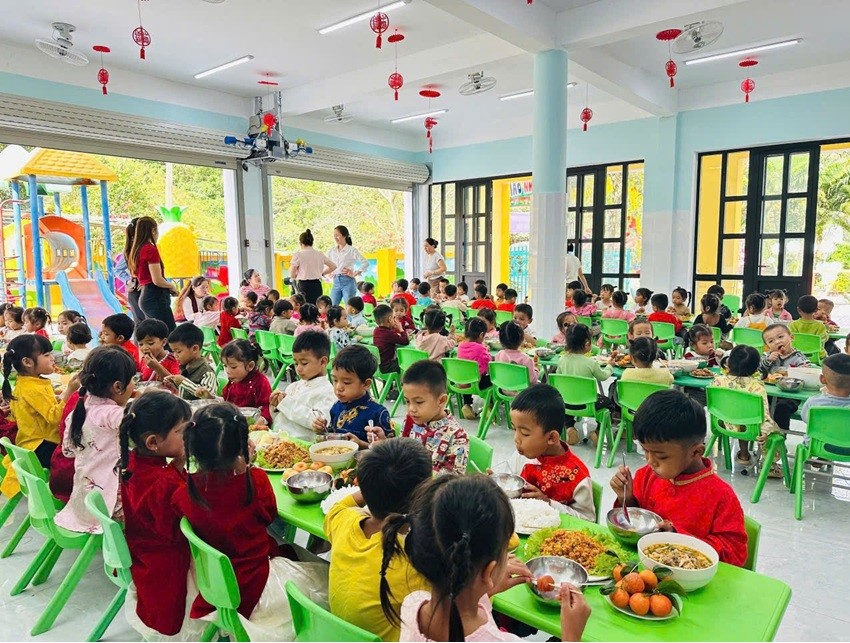 Viet's Home
Viet's Home
Zhi Shan Foundation Sent Tet gifts to Over 3,000 Children in Mountainous Region of Quang Tri
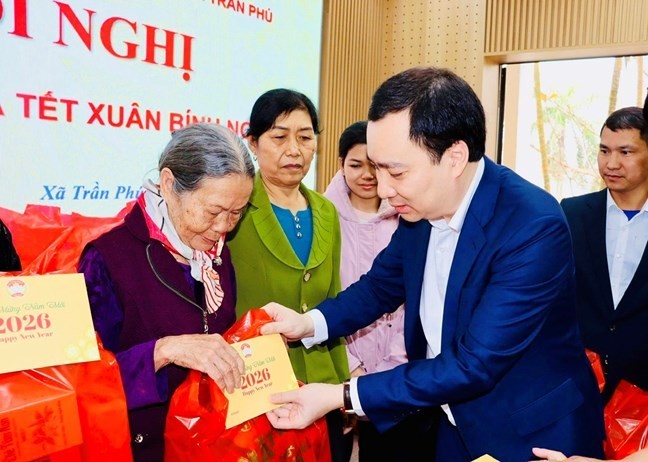 Viet's Home
Viet's Home
Hai Phong Brings Lunar New Year Gifts to Disadvantaged Families in Tran Phu Commune
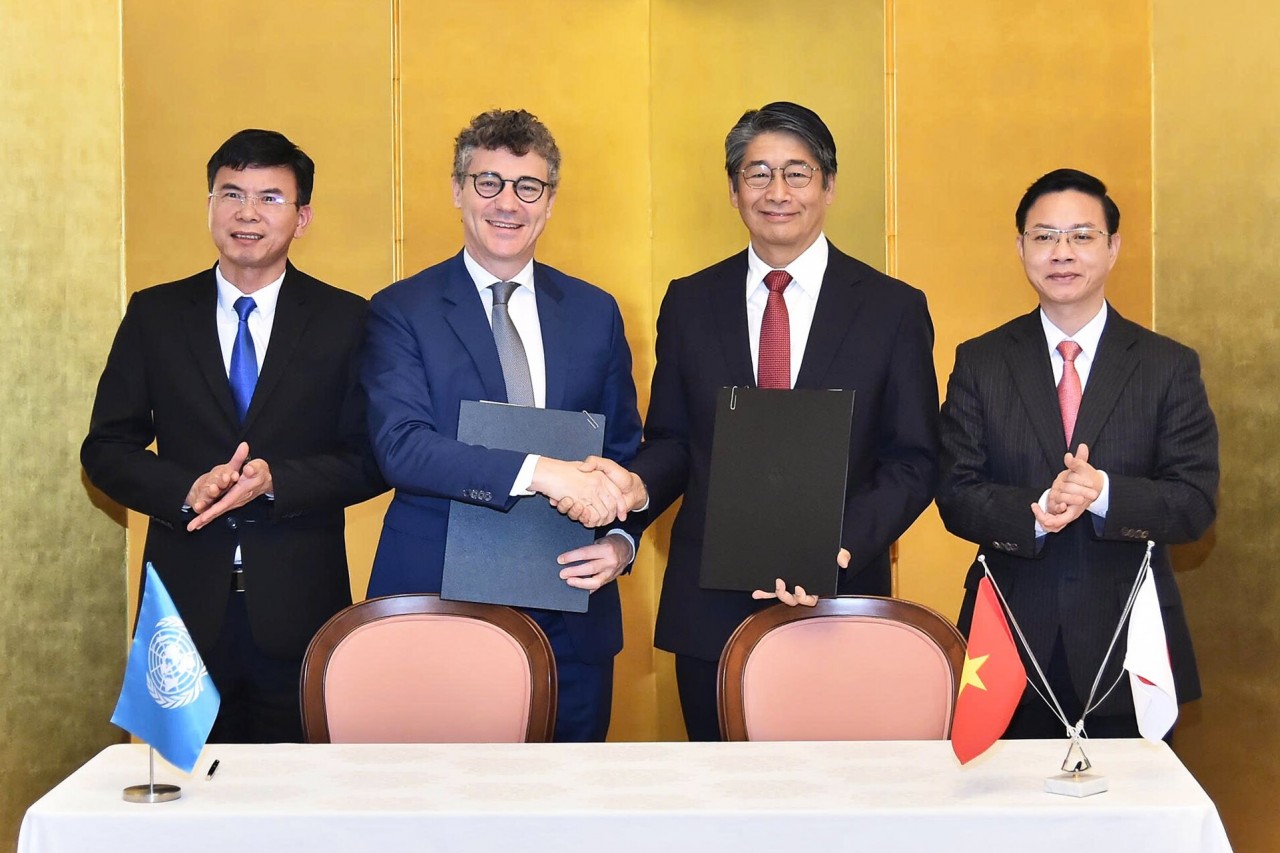 Viet's Home
Viet's Home




